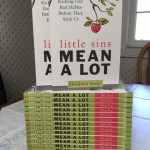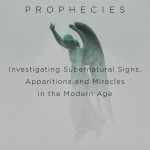Leah Libresco is deeply gratified that JK Rowling regrets putting Ron and Hermione:
It’s not just that Ron seems less intelligent and inquisitive than Hermione in the books, but that her joy in research and making connections leave him uninterested at best and impatient or contemptuous at worst. And she hardly seems to share his interest in Quidditch or Wizard Chess. Couples don’t need to share every interest, but a partner who checks out when you’re at your most engaged and joyful is bad news.
Still Libresco is less-than-pleased that Rowling’s stated preference would have been to couple Hermione to Harry, as she very much enjoys their platonic friendship.
I do too. I always loved the way Harry and Hermione were true friends, deep and fast friends, dependable and willing to sacrifice for each other, in a spirit of agape. It seems to me that the sexual revolution has wrecked our understanding of the value of agape, a notion I brought up in the combox over here at First Things:
Bl. John Henry Newman shares a grave with his companion Ambrose St John; I do not suggest that Newman was in any way unchaste, and yet there was a deep relationship, there — something that went beyond mere friendship, into a meeting of mind and spirit that was a genuine love, fast enough that they wished to be buried together. These sorts of very deep male friendships were I think better-understood in England than in America, and I think most of them were NOT homosexual in nature, but they were exclusive, in a way we almost cannot imagine today.
[…] Perhaps this normal sort of deep agape has become corrupted by a sexual revolution that added a sexual component to these sorts of relationships that, previously, would have been unthinkable, that being “if you feel love this deeply, it must be expressed sexually, too” — the prevalent narrative of our disoriented age.
That is an idea worth exploring, and I will, at some point, but it diverts us from the main point of this post, which is to not to consider agape, but to argue with Leah about whether or not Harry Potter should even have survived the series. I maintain that he — like Hamlet — should have died, and I’ve been saying so since 2006:
. . .everyone wants to see Harry, Hermione and Ron live happily ever after — but what would the rest of Harry’s life be like? Perhaps he’d teach Defense Against the Dark Arts, but Voldemort vanquished it would all seem pretty pedestrian to him wouldn’t it? And rather purposeless? His parents would still be dead. Dumbledore, dead. Possibly Hagrid, dead. One or several Weasleys dead. Ron and Hermione probably wed.
Here is the interesting question: when a life has been lived with a sense of deep mission — as in either Hamlet’s or Harry’s case — and that mission has been fulfilled, what is the purpose of the life, thereafter? If the 18 year old Harry (or a 20-something year old Hamlet) have accomplished their goal, the thing that has driven them and given their whole life meaning and purpose, are we supposed to believe they can ever rest easy in a sort of “busywork” retirement?
Perhaps this is why monarchs, old generals, entrepreneurs, mother-hung rock stars and CBS newsmen can never willingly retire and live out their days. Without their sense of mission, life has no thrust and parry, no vivacity, no purpose.
[. . .]
Ophelia and Laertes and Horatio were fine enough people, even perhaps a little noble, but they were not single-minded and undistracted; they could not perceive what was happening around them. Hamlet, in his imperfect greatness, was the only character, besides evil Claudius, with a vision -– no matter how distraught -– and the gumption to strike out and move the narrative.Hermione and Ron and Hagrid, again, good people, noble, but still rather ordinary. Without Harry, they’re just part of the necessary-but-plain crowd. Harry has the greatness, he moves the narrative, therefore more will be expected of him.
Christ moved the narrative of the world, too. The narrative movers rarely get to live out an ordinary sort of life once things have shifted – more often than not, they die. Resurrection is uncommon.
When my younger son, Buster, finished the series, he flung that heavy last book against the wall and yelled “for that? Seven books, and my entire childhood for that? So they could end up casting spells on their leaf blowers for the rest of their lives?” He was so fed up.
What do you think? Harry and Hermione wed? Or Harry dead? Which ending would you prefer?












